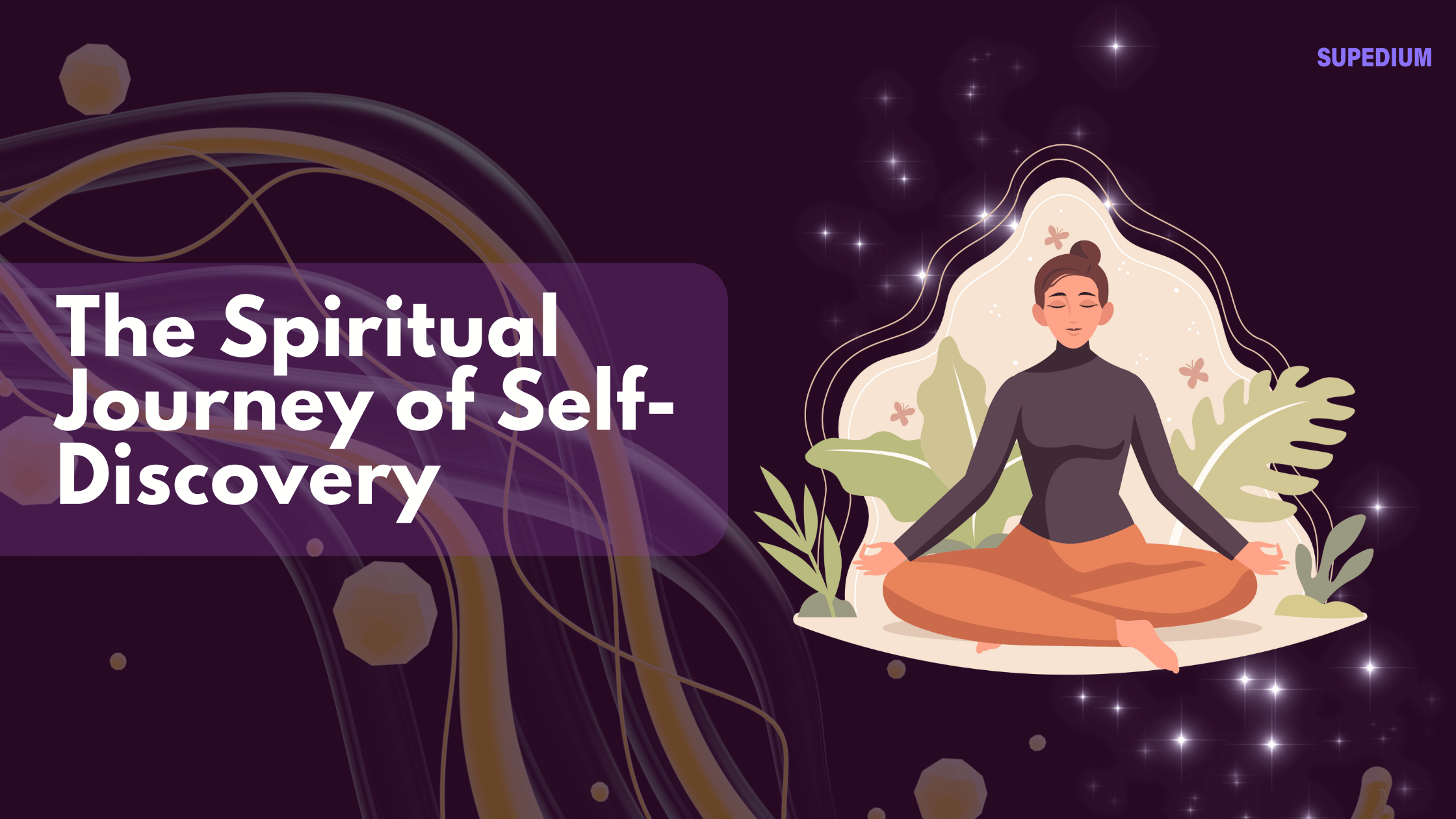Table of Contents
- 1 Introduction
- 2 Historical and Cultural Perspectives
- 3 Ancient Philosophies
- 4 Indigenous and Tribal Practices
- 5 Modern Interpretations
- 6 Stages of the Spiritual Journey
- 7 Tools and Practices for Self-Discovery
- 8 Challenges and Obstacles
- 9 The Role of Community and Relationships
- 10 The Impact of the Spiritual Journey
- 11 Conclusion
![]()
Introduction
The concept of a spiritual journey encompasses a profound exploration of one’s inner self and higher consciousness. Unlike religious practices that often involve adherence to specific doctrines, the spiritual journey is deeply personal and may involve a variety of practices and beliefs aimed at achieving a deeper understanding of oneself and one’s place in the world. This process of self-discovery can lead to significant personal growth, a clearer sense of purpose, and an enhanced sense of well-being.
Historical and Cultural Perspectives
Understanding the spiritual journey involves recognizing its historical and cultural contexts. Ancient philosophies provide a foundation for many contemporary spiritual practices.
Ancient Philosophies
Eastern traditions, such as Hinduism, Buddhism, and Taoism, have long emphasized the importance of self-discovery. Hinduism speaks of self-realization through meditation and adherence to dharma (duty). Buddhism focuses on the path to enlightenment through practices such as mindfulness and the Noble Eightfold Path. Taoism advocates for alignment with the Tao, or the fundamental nature of the universe, through simplicity and naturalness.
Western philosophies also offer insights. Greek Stoicism, for instance, promotes self-control and rational thinking as pathways to inner peace. Gnosticism, an early Christian movement, highlights knowledge (gnosis) of spiritual truths as essential for salvation.
Indigenous and Tribal Practices
Indigenous and tribal traditions often center around a deep connection with nature and spiritual rituals. Native American spirituality, for example, includes practices like vision quests and sweat lodges to foster personal insight and spiritual connection. Aboriginal and African spiritual traditions frequently involve storytelling, ancestral worship, and communal rites to understand one’s place in the world.
Modern Interpretations
In contemporary times, the New Age movement integrates various spiritual traditions, promoting practices such as crystal healing and astrology. There is also a growing trend of blending multiple spiritual philosophies to create personalized spiritual paths.
Stages of the Spiritual Journey
The spiritual journey is often marked by distinct stages, each contributing to a deeper understanding of oneself.
Awakening
The journey often begins with an awakening—a moment of heightened awareness or a profound experience that prompts one to question their current life and beliefs. This could be triggered by a personal crisis, a moment of epiphany, or an encounter with new ideas.
Seeking
Following the awakening, many individuals embark on a phase of seeking, exploring different spiritual practices and belief systems. This exploration might involve studying sacred texts, attending spiritual gatherings, or seeking guidance from mentors.
Struggle and Transformation
The journey is rarely smooth; it often involves significant struggle and transformation. This phase is characterized by internal conflicts, self-doubt, and emotional challenges. These struggles are crucial as they facilitate personal growth and transformation, allowing individuals to confront and overcome their limitations.
Integration
Eventually, the insights gained during the journey are integrated into daily life. This involves aligning one’s actions and beliefs with the new understanding, and often results in a developed personal philosophy or spiritual practice that is unique to the individual.
Tools and Practices for Self-Discovery
Various tools and practices can facilitate the spiritual journey of self-discovery.
Meditation and Mindfulness
Meditation and mindfulness are central to many spiritual practices. Techniques such as focused breathing, visualization, and body scans help individuals attain greater self-awareness and emotional balance. Regular practice can lead to a deeper understanding of one’s thoughts and feelings.
Journaling and Reflection
Journaling is another valuable tool for self-discovery. Writing about one’s experiences, thoughts, and reflections can help track progress and clarify insights. Reflective writing encourages self-examination and can illuminate patterns and themes in one’s life.
Spiritual Reading and Study
Reading spiritual texts and studying various philosophies can deepen one’s understanding of spiritual concepts. Influential books and authors provide guidance and inspiration, helping individuals explore new perspectives and integrate them into their spiritual journey.
Retreats and Workshops
Immersive experiences such as retreats and workshops offer opportunities for intense spiritual growth. These environments provide space away from everyday life, allowing for concentrated practice and deeper exploration. Choosing the right retreat or workshop depends on one’s specific interests and spiritual goals.
Challenges and Obstacles
The spiritual journey is not without its challenges. Understanding these obstacles and strategies for overcoming them can help maintain momentum.
Internal Barriers
Fear and self-doubt are common internal barriers. Overcoming these requires confronting one’s insecurities and embracing vulnerability. Attachment to old beliefs and habits can also hinder progress, necessitating a willingness to let go of outdated perspectives.
External Influences
External pressures, such as societal expectations and family dynamics, can complicate the spiritual journey. Balancing personal growth with social and familial responsibilities requires navigating these influences while remaining true to oneself.
Navigating Setbacks
Setbacks are a natural part of the journey. They offer opportunities for learning and growth. Developing resilience and maintaining a positive outlook can help individuals overcome obstacles and continue their spiritual development.
The Role of Community and Relationships
Community and relationships play a crucial role in the spiritual journey.
Support Networks
Finding a supportive community can enhance the journey of self-discovery. Spiritual groups and networks provide encouragement, shared experiences, and a sense of belonging. Engaging with like-minded individuals can offer insights and support.
Relationships and Growth
Personal relationships often impact spiritual growth. Navigating changes in relationships and ensuring that they support rather than hinder spiritual development is essential. Open communication and mutual understanding can help maintain harmonious relationships during personal transformation.
The Impact of the Spiritual Journey
The spiritual journey can lead to significant personal and broader impacts.
Personal Transformation
Individuals often experience profound personal transformation. Changes in self-perception, behavior, and emotional well-being are common outcomes. The journey fosters a greater sense of inner peace and alignment with one’s true self.
Broader Implications
The effects of the spiritual journey extend beyond the individual. Enhanced personal growth can positively influence relationships and community involvement. A deeper sense of purpose and fulfillment often leads to a more meaningful and connected life.
Conclusion
The spiritual journey of self-discovery is a deeply personal and evolving process. It involves awakening to one’s true nature, navigating challenges, and integrating new insights into daily life. While the path is unique to each individual, the journey often leads to profound personal growth and a greater understanding of one’s place in the world. Embracing this journey can lead to a richer, more fulfilling life, marked by a deeper connection to oneself and the broader universe.
Share This





Be the first to comment